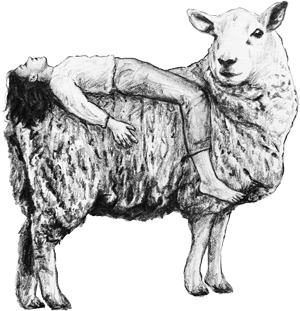Garlic, a staple in kitchens worldwide, is more than just a flavorful addition to your meals. This humble bulb has a long history of use in traditional medicine, and recent interest has grown around its potential role in improving sleep.
In this article, we’ll dive deeper into the connection between garlic and sleep, exploring whether garlic can help you sleep better, the best time to consume it, and how it pairs with other natural remedies like ginger.
Can Garlic Help in Sleeping?
The question of whether garlic can help you sleep is intriguing, and the answer lies in garlic’s unique composition. Garlic contains several compounds that contribute to its health benefits, but when it comes to sleep, allicin, a sulfur compound, is particularly noteworthy. Allicin is known for its ability to relax blood vessels and promote blood flow, which can lead to a calming effect on the body, potentially making it easier to fall asleep.
Additionally, garlic has been studied for its potential to reduce stress and anxiety, two common culprits behind sleepless nights. By regulating cortisol levels, garlic may help ease the mind and prepare the body for restful sleep. This effect is similar to other natural sleep aids like valerian root or chamomile, making garlic a valuable, albeit less recognized, tool in the sleep improvement arsenal.
Why Do I Feel Sleepy After Eating Garlic?
Many people report feeling sleepy after consuming garlic, and this might not be a coincidence. The sleep-inducing effects of garlic can be linked to its ability to promote relaxation and reduce stress. When you eat garlic, especially in larger quantities, it can induce a sense of calm and relaxation that might lead to drowsiness.
Moreover, garlic’s potential impact on neurotransmitters like serotonin, which plays a crucial role in regulating sleep, could be another reason why you feel sleepy after eating it. By enhancing serotonin production, garlic may help ease the transition from wakefulness to sleep, making it easier to drift off after a garlic-rich meal.
What is the Best Time to Eat Garlic?
Timing is crucial when it comes to reaping the sleep-related benefits of garlic. To maximize its effects, consider consuming garlic in the evening, ideally a couple of hours before bed. This timing allows your body to absorb and metabolize the compounds in garlic, helping you relax as bedtime approaches.
Including garlic in your dinner is an easy and effective way to incorporate it into your routine. Whether it’s a garlicky pasta, a hearty soup, or a simple stir-fry, eating garlic in the evening might set the stage for a more restful night. However, it’s also essential to listen to your body. If you find that garlic disrupts your sleep or causes digestive discomfort, it might be better to consume it earlier in the day.
Does Ginger and Garlic Help with Sleep?
Ginger, like garlic, is another powerful ingredient with a host of health benefits. When combined, garlic and ginger create a potent duo that can contribute to better sleep in several ways.
Ginger is well-known for its anti-inflammatory properties and its ability to soothe the digestive system, which can be particularly beneficial if indigestion or acid reflux is interfering with your sleep. Additionally, ginger has been shown to have a calming effect on the nervous system, which, when paired with garlic’s relaxation-inducing properties, can create a soothing pre-sleep ritual.
A warm ginger and garlic tea before bed might be just what you need to unwind. Simply simmer a few slices of fresh ginger and a couple of crushed garlic cloves in water for 10-15 minutes, strain, and sip slowly. This combination can help calm the mind and body, paving the way for a good night’s sleep.
Conclusion
Garlic, a simple kitchen ingredient, holds surprising potential as a natural sleep aid. From its ability to relax blood vessels and regulate stress to its role in promoting serotonin production, garlic can be a valuable addition to your sleep-enhancing routine. Pairing it with ginger only amplifies its benefits, creating a powerful, natural remedy to help you achieve better sleep. So next time you’re preparing your evening meal or looking for a calming bedtime beverage, consider reaching for garlic—and maybe even a bit of ginger—as your go-to ingredients for a restful night.
Sleep well, and let nature’s remedies guide you to the restful sleep you deserve.



